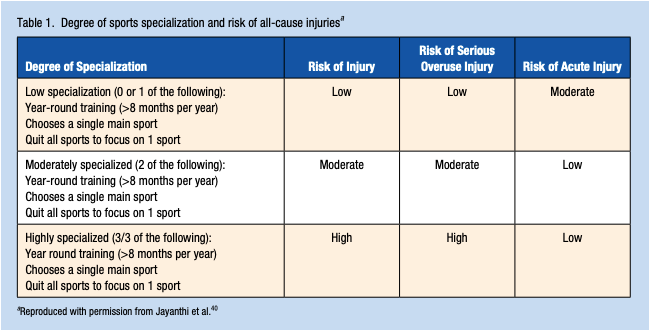Specialized Risk Competitions
In today’s fast-paced world, specialized risk competitions have emerged as a thrilling platform where participants push their limits while managing the inherent hazards. These competitions are not just about testing physical endurance; they also evaluate mental strength, strategic thinking, and risk assessment skills. Whether you are an athlete, a strategist, or just an enthusiast, understanding the dynamics of these competitions can offer insights into both the risks involved and the excitement that comes with them.
From extreme sports to strategy-based games, specialized risk competitions cater to various interests, making them appealing to a wide audience. In this comprehensive article, we will explore the various types of specialized risk competitions, the skills required, the potential dangers, and how to prepare for success. We’ll also delve into the psychology behind risk-taking and competition.

The Nature of Specialized Risk Competitions
Specialized risk competitions are events where participants face unique challenges that involve elements of risk. These can range from extreme sports competitions like rock climbing, extreme biking, to high-stakes strategy games that involve significant psychological and tactical challenges. Understanding the nature of these competitions can help participants assess their capabilities and prepare effectively.
Extreme Sports Competitions
Extreme sports have gained popularity in recent decades, attracting thousands of participants and spectators worldwide. Competitors engage in activities like skateboarding, BMX biking, and base jumping. These sports often come with significant risks, requiring safety gear, thorough training, and awareness of personal limits.
- Rock Climbing: This sport tests physical strength, agility, and problem-solving skills. Climbing competitions often take place in controlled environments where safety measures are in place, but the risk of injury persists.
- Skateboarding: Events like street competitions require participants to perform tricks and maneuvers in urban settings, often leading to falls and injuries.
- BMX Biking: Bike motocross competitions involve racing on dirt tracks with jumps and obstacles that can lead to serious accidents.
Strategy-Based Risk Competitions
These competitions challenge participants mentally, often requiring quick thinking, strategic planning, and psychological resilience. Examples include poker tournaments, chess tournaments, and various esports competitions.
- Poker: A game that combines skill, strategy, and luck, poker tournaments can lead to significant financial gain or loss.
- Chess: While not physically risky, chess competitions involve strategic risk-taking, as players must evaluate their opponents’ moves and counter-strategies.
- Esports: Competitive gaming has exploded in recent years, with tournaments that require gamers to make quick decisions under pressure, often involving considerable winnings.
Skills Required for Success
To excel in specialized risk competitions, participants need a blend of physical, mental, and strategic skills. Training is crucial to developing these skills effectively.
Physical Skills
- Endurance: Many competitions require physical strength and stamina, making it important for participants to condition their bodies through regular training.
- Agility: Quick reflexes and agility are essential, particularly in sports requiring fast-paced movements and quick decision-making.
- Coordination: Activities often involve complex movements, requiring a high level of coordination and control over one’s body.
Mental Skills
- Strategic Thinking: Participants must develop and execute strategies while adapting to opponents’ moves or unexpected events.
- Risk Assessment: Knowing when to take risks and when to hold back can be the difference between winning and losing.
- Resilience: The ability to recover from failure and learn from mistakes is crucial in building competitive strength.
Potential Dangers Involved
While specialized risk competitions can be exhilarating, they also pose significant dangers. Understanding these risks can aid participants in making informed decisions and taking necessary precautions.
Physical Risks
- Injuries: From sprains to fractures, physical injuries are common in extreme sports. Participants should always wear appropriate protective gear and practice in safe environments.
- Environmental Hazards: Competing in natural settings exposes participants to additional risks including weather changes, wildlife encounters, and geographical challenges.
Emotional and Psychological Risks
- Burnout: The high-pressure environment of competitive risk can lead to emotional burnout. Participants should manage their stress levels and take breaks when needed.
- Financial Risks: In strategy-based competitions, financial losses can occur. Responsible bankroll management is essential for participants in games like poker.
Preparing for Specialized Risk Competitions
Preparation is key to success in any competition. Participants should engage in thorough training and adopt appropriate strategies to build their skills and confidence.
Training Regimens
- Physical Training: Regular physical conditioning programs tailored to the specific demands of the sport or competition can enhance performance.
- Mental Training: Techniques such as visualization, mindfulness, and tactical drills are important for mental preparation.
- Simulated Scenarios: Engaging in practice competitions can help participants understand the dynamics of real competitions and build confidence.
The Psychology of Risk-Taking
Understanding the psychology behind risk-taking can provide deeper insights into why individuals participate in specialized risk competitions. Factors influencing risk-taking behavior include thrill-seeking tendencies, peer influences, and personal motivations.
Thrill-Seeking
Many participants are drawn to the adrenaline rush associated with high-stakes competitions. The psychological reward of pushing one’s limits can lead to repeated engagement in these activities.
Social Factors
Peer influence and competition can motivate individuals to participate in specialized risk competitions. Being part of a community can enhance the experience and provide support.
Conclusion
Specialized risk competitions present a blend of thrill, challenge, and opportunity for personal growth. While they carry inherent dangers, with proper preparation, mental conditioning, and risk assessment, participants can thrive in these exhilarating environments. Whether you are drawn to the adrenaline of extreme sports or the strategic intricacies of risk-based games, understanding the nature of these competitions is essential for achieving both success and enjoyment.
If you’re interested in diving deeper into specific risks or strategies in various competitions, check out articles on basketball strategies or training regimens for athletes to refine your skills and knowledge.
